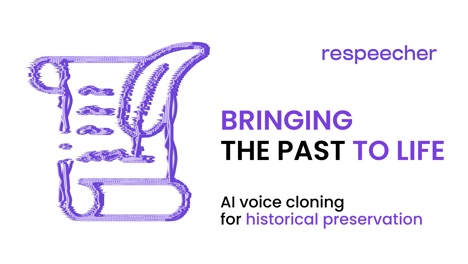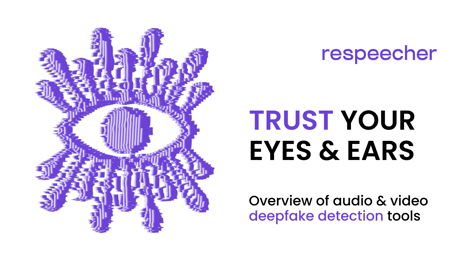Brand Voice vs Brand AI Voice: What Are They and Why You Need Both

A brand's identity concept extends far beyond just a logo or tagline. A brand's voice plays a crucial role in shaping its personality, connecting with the audience, and establishing a lasting impression. With the advent of artificial intelligence (AI) technologies, the introduction of Brand AI Voice has added another dimension to this dynamic interplay and branding basics.
What is a brand voice?
A brand voice, often called the brand tone of voice, is the consistent and distinctive manner in which a brand communicates with its audience. It encompasses a brand's unique personality, style, language, and values across various channels and touchpoints. Essentially, a brand voice expresses a brand's identity through written or spoken communication.
Here are key elements that contribute to defining a brand voice:
- Tone: The emotional quality or attitude expressed in the language.
- Style: The specific way the brand communicates, including sentence structure, vocabulary, and grammatical choices.
- Language: The words and phrases unique to the brand, creating a distinct vocabulary that resonates with its audience and reinforces its identity.
- Values: The underlying principles and beliefs that the brand wants to convey.
- Consistency: Maintaining a consistent voice across all communication platforms helps build a recognizable and trustworthy brand identity.
- Adaptability: While consistency is essential, a brand voice should also be adaptable to different contexts and situations.
Creating and managing a brand voice is a collaborative effort that typically involves multiple stakeholders within a company. The responsibility often falls under the purview of the marketing and communications teams.
A brand AI voice refers to a custom-created, artificial intelligence-generated voice that embodies a specific brand's distinctive personality and identity. This technology allows companies to infuse a human-like voice into various applications, such as audio content on websites, educational videos, customer service interactions, in-store experiences, etc. Unlike generic or pre-existing AI voices, a brand AI voice is tailored to align with the brand's values, tone, and overall identity, offering a unique and recognizable auditory representation.
Best practices for maintaining a brand tone of voice
Maintaining a brand tone of voice, especially in the context of AI tools that can generate content, requires a thoughtful approach. Here are some best practices to ensure consistency and authenticity in your brand's tone of voice:
Establish Clear Guidelines
Before starting with AI speech synthesis, define and document comprehensive guidelines that outline the key elements of your brand's tone of voice, including specific examples and scenarios.
Regularly Update Guidelines
As your brand evolves or expands into new markets, revisit and update your tone of voice guidelines. This ensures your brand's communication remains relevant and resonant with your audience.
Maintain a Consistent Persona
Whether humans or AI creates content, strive for a consistent persona across all channels. This consistency helps reinforce your brand identity and builds trust with your audience when implementing AI voice synthesis.
Understand the Audience
Tailor your tone of voice to suit the preferences and expectations of your target audience. Consider factors such as demographics, cultural nuances, and communication preferences.
Test and Iterate
Continuously test the effectiveness of your brand's tone of voice in different contexts. Use feedback and performance metrics to iterate and refine your approach.
Adapt to Platforms
Understand the nature of each communication platform and adapt your tone of voice accordingly. Social media may allow for a more casual and conversational tone than a formal press release.
Consider Emotional Resonance
Consider incorporating emotional resonance into the guidelines if using AI tools to create content. AI can mimic emotions, but a human touch may be necessary to ensure genuine emotional connection.
Monitor Industry Trends
Stay informed about industry trends and changes in communication styles. Your tone of voice should reflect the current landscape while remaining true to your brand's identity.
Address Ethical Considerations
Be mindful of ethical considerations related to AI voice generators. Ensure that your use of AI aligns with your brand's values and does not compromise authenticity or transparency.
How having a unique brand AI voice could benefit your company
A unique brand AI voice can benefit your company by enhancing its brand identity, customer interactions, and overall user experience. Here are some examples of companies and people that have leveraged custom AI voices:
Voice Branding with Google Assistant
Google has invested in creating a unique and recognizable voice for its virtual assistant, Google Assistant. Users can interact with the assistant using a natural and human-like voice. Google's commitment to creating a distinct AI voice contributes to a more engaging and personalized user experience across various devices, from smartphones to smart speakers.
Voice Interfaces in Customer Service
Some companies use AI voices in customer service applications to enhance efficiency and provide a consistent brand experience. For instance, banks and financial institutions may deploy AI voices for interactive voice response (IVR) systems, ensuring a standardized and on-brand customer interaction.
Tribute to Avicii with AI voice
In honor of famous Swedish DJ Avicii, one of his best-known collaborators, Aloe Blacc, created an international version of the song "Wake Me Up" to help more people appreciate the real meaning behind its words. Thanks to Respeecher, Aloe appeared to sing Mandarin, Italian, French, and Spanish fluently, presenting a beautiful and touching version of "Wake Me Up," capable of reaching millions of music lovers.
The benefits of having a unique brand AI voice for a company include:
- Brand Differentiation: A unique brand AI voice sets a company apart from competitors, making it instantly recognizable and reinforcing its brand identity.
- Enhanced User Experience: A well-crafted brand AI voice contributes to a more natural and enjoyable user experience, whether in customer service interactions, virtual assistants, or other applications.
- Consistent Brand Messaging: Brand AI voices can deliver brand messages consistently across various platforms, ensuring a unified brand presence.
- Increased Engagement: A unique and appealing brand AI voice can capture users' attention, increasing engagement and fostering a positive brand perception.
- Brand Trust: Establishing a consistent and reliable brand AI voice builds trust with users as they associate the voice with the brand's values and commitment to quality.
While these examples showcase the potential benefits of custom AI voices, companies need to approach AI voice implementation thoughtfully, considering their brand identity, target audience, and the specific context of use.
Who else can benefit from an AI brand voice?
YouTubers
YouTubers can maintain a consistent tone and style across their video content, reinforcing their brand identity.
Celebrities
AI voices can be used for brand endorsements, maintaining the celebrity's unique voice even in scripted advertisements or promotional content.
Coaches
Coaches can use AI voices to automate the creation of coaching content, such as guided meditations, affirmations, or instructional materials.
Authors
AI voices can provide an alternative narration option for audiobooks, allowing authors to reach a broader audience in a cost-effective way.
Podcasters
Podcasters can use brand AI voices for consistent and branded introductions, creating a professional and polished opening for each episode.
Influencers
Influencers can utilize AI voices to automate the creation of social media captions, maintaining a consistent voice across different platforms.
Motivational Speakers
Motivational speakers can use AI voices to customize motivational messages based on individual preferences or occasions.
Conclusion
Integrating AI voices has become a powerful tool for individuals and brands, offering an innovative approach to content creation, brand identity, and user engagement. Respeecher , through its cutting-edge Voice Marketplace and Text-to-Speech (TTS) technology, empowers brands to shape a distinctive voice for their identity or seamlessly have an AI voice clone of a representative figure. This simplifies the content creation process and ensures a consistent and recognizable brand AI voice across various platforms.
The Voice Marketplace by Respeecher is a dynamic hub where brands can discover, experiment, and select the ideal AI voice that aligns seamlessly with their unique identity. Respeecher also allows brands to effortlessly create endless audio materials without constant recording efforts, providing a scalable solution for content generation.
The capabilities offered by Respeecher extend beyond linguistic borders, enabling brands to communicate effectively in multiple languages. With the explicit permission of the voice donor, Respeecher facilitates the creation of AI voices that resonate with diverse global audiences, contributing to a more inclusive and personalized brand experience.
FAQ
AI voice cloning for animation uses voice cloning technology to create digital voice replicas, enabling animators to easily select voices for characters. It supports animation voice casting, helps preserve voice legacy, and allows for global voice accessibility in creating unique, experimental character voices.
The Respeecher Voice Marketplace offers flexible voice editing tools and access to digital voice replicas, enabling indie animators to cast voices without the need for traditional actors. It provides a platform for creating experimental character voices and supports innovative character design while ensuring global voice accessibility.
Yes, voice cloning technology can preserve voice legacy by replicating the original voice through digital voice replicas. This allows creators to maintain consistency in character voices for future productions, even when the original voice actor is unavailable, ensuring the legacy remains intact across time.
Ethical considerations for AI voice cloning include obtaining explicit consent from voice donors, ensuring transparency in usage, and avoiding misuse for deceptive purposes. It's crucial to respect privacy, uphold the integrity of preserving voice legacy, and prioritize the ethical creation of digital voice replicas.
Voice cloning empowers experimental character voices by providing flexible voice editing tools that allow creators to explore unique and imaginative voices for new characters. This supports innovative character design, enabling designers to push creative boundaries while maintaining global voice accessibility.
Glossary
AI voice cloning
Animation voice casting
Digital voice replication
Preserving voice legacy
Innovative character design

- voice cloning
- AI voice synthesis
- AI voice
- voice cloning software
- AI voice generator
- tone of voice examples
- brand AI voice
- custom AI voice
- AI speech synthesis
- AI voice clone
- realistic voice generator
- AI content generation
- speech generator
- how to make an AI voice
- brand voice
- what is a brand voice
- brand tone of voice
- brand voice guidelines
- tone of voice
- tone of voice definitio
- Respeecher for Business
- Marketing and Advertising





